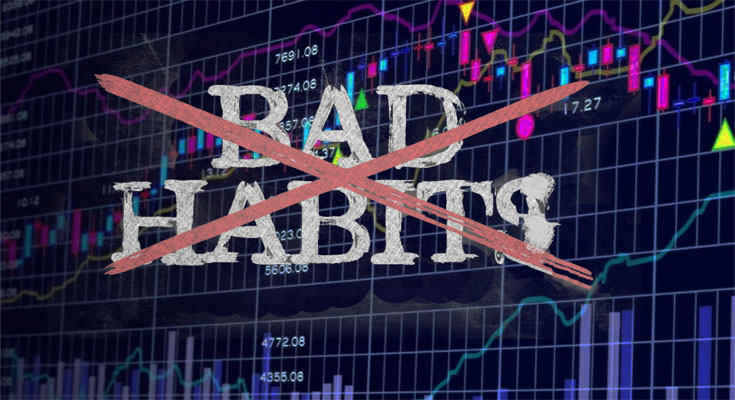Are you constantly making the same trading mistakes but can’t seem to break out of the cycle? Are your emotions getting the better of you and negatively impacting your trading decisions? If so, you’re not alone. Trading is a process that comes with highs and lows—sometimes, it’s easy to get carried away in the emotion of it all. But don’t worry: some steps can be taken to recognise these bad habits and stop them once and for all.
This article will discuss how traders can identify problems in their trading plan and create strategies for successful long-term investing. So if you’re ready to take control of your portfolio, read on.
Identify your bad trading habits
Achieving trading success starts with recognising which habits are hindering your overall performance. Many traders unknowingly develop bad habits that become ingrained and negatively impact their trades. The first step to eliminating these pitfalls is identifying what they are. Some examples of bad trading habits include jumping into trades without doing adequate research, relying on gut instinct instead of looking at data, or focusing too heavily on short-term results rather than setting long-term goals.
By self-evaluating your strategies, you can accurately assess which behaviours are causing you the most difficulty and craft a plan to address them. It may involve seeking help from other seasoned traders or taking a break from the market until you can reset your trading mentality.
Taking control over bad habits is essential for achieving successful trading outcomes – it’s only when traders become aware of their pitfalls that they can genuinely work towards success in the market. Saxo has a range of resources to help traders assess their risk profile and identify lousy trading habits, including Saxo’s Advanced Trade Report, which offers detailed insights into your trading activity.
Create actionable steps to help improve and prevent them from occurring
Once you’ve done the work to identify your bad habits, it’s time to formulate a plan of action. It should include specific steps to help prevent these behaviours from occurring again. For example, if you rely too heavily on gut instinct when making trades, establish more concrete entry and exit points rules. That way, you can use data-driven methods to make informed trading decisions instead of relying solely on intuition.
Consider diversifying your portfolio by investing in different asset classes or adopting a longer-term investment strategy rather than chasing short-term gains. By doing this, you’ll be able to manage risk better and create a well-balanced portfolio. Additionally, it’s important to remember that trading isn’t a race – it’s all about taking consistent steps forward to achieve long-term success. These steps don’t have to be drastic, but they should be realistic and achievable to be effective.
Set realistic goals to achieve within a specific timeframe
Taking the time to set realistic, achievable goals is essential for long-term trading success. Goals give you something to strive towards and help keep you motivated – they also provide structure and organisation when evaluating your progress. Ensure that all your goals are SMART: Specific, Measurable, Achievable, Relevant and Time-bound.
When setting a timeline for achieving these goals, try not to rush yourself too much. Set reasonable and achievable deadlines, as this will ensure that you stay calm about the task at hand. Additionally, keep track of your performance with regular reviews so you can stay on top of any potential problems or areas for improvement to achieve optimal results.
Track your progress so you can see how far you have come
To make sure you’re improving and staying on track, it’s essential to keep a close eye on your progress. It can be done by regularly evaluating your performance and comparing it to the goals set earlier to identify any areas of improvement or stagnation.
Create specific KPIs (key performance indicators) that allow you to measure your success accurately, such as the percentage of winning trades, risk-to-reward ratio, and total profits/losses. Remember to celebrate small victories – this will help you stay motivated even during tough times.
Learn from mistakes and re-evaluate your strategy
Finally, it’s essential to remember that trading can be volatile and that mistakes are inevitable. It’s okay to make a few missteps – in fact, the key is learning from them so you can adjust your strategy accordingly and prevent future losses.
It may involve taking a step back, re-evaluating your performance and adjusting your goals or strategies if needed. As they say, “failure is not final” – as long as you learn from past mistakes, there’s always an opportunity for improvement and success.
By following these steps, traders can ensure that their trading practices are ethical and advantageous in the long run. With discipline and persistence, anyone can take control of their bad habits and transform them into good ones. By implementing these strategies and adjusting as needed, traders can increase their chances of achieving long-term market success.





